
There’s a battle going on. It happens in your brain. Do not be alarmed. It only affects every decision you’ve ever made and will ever make. It only affects your health, wealth and opinion and how you think and behave. No biggie.
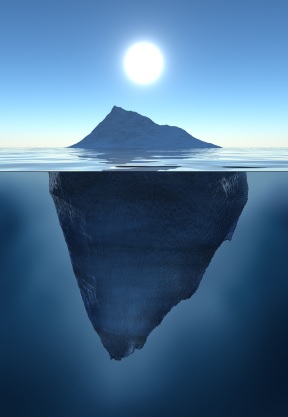 The battle goes on beneath the surface of consciousness. That’s why you sometimes say, “Why did I do that? Did I say that? That wasn’t me.” Like everybody, you’re under a misconception. You think you know what influences you and how those influences affect you.
The battle goes on beneath the surface of consciousness. That’s why you sometimes say, “Why did I do that? Did I say that? That wasn’t me.” Like everybody, you’re under a misconception. You think you know what influences you and how those influences affect you.
Freud (1915) described the conscious mind as the tip of the iceberg because a lot goes on beneath the surface (source). We can like or dislike something instantly without knowing why.
It goes like this (cue music: Ulf Söderberg “Tide” part 1).
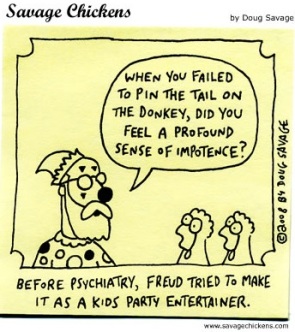 First you have a feeling, then you make up something to explain that feeling. The explanation becomes a label. The label is declared true. It influences you. You become a self-fulfilling prophecy primed by what you do.
First you have a feeling, then you make up something to explain that feeling. The explanation becomes a label. The label is declared true. It influences you. You become a self-fulfilling prophecy primed by what you do.
Think badly and badly you become.
You’re framed by spin.
In You Are Not So Smart (2011) David McRaney wrote, “You move through life forming opinions and cobbling together a story about who you are… taken as a whole it seems real” (p. xi).
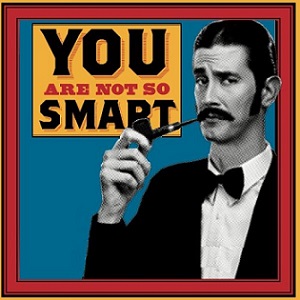 But it isn’t.
But it isn’t.
It’s how you look at it. Out of the randomness of life you try to make sense and create meaning for yourself (McRaney, 2011). It’s what humans do. We interpret reality. We look at stars and see constellations. We see patterns in bullet holes on country signs.
With facial suggestions, we are “uniquely wired” to see faces in breakfast (source).

We connect the dots of what goes on by combining expectations (what we think will happen) with mental models (how we think something works) and five senses (source: Myth or Science?).
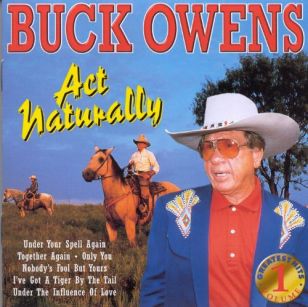
With confidence you see your history like a movie with characters, plots, themes and settings. You see yourself as a protagonist, but it’s a beautiful confabulation. The truth is: You make yourself up as you go. You’re a work in progress and like Buck Owens and a Buckaroo think, “All I gotta do is act naturally.”
You are the tale you tell. It’s “The Story of Me!” as told by you. Memories are daydreams: part true, part fantasy, but you believe them completely.
Look at your surroundings. Set your mind “Open!” Realize that what matters most is to enjoy the significance of existence by loving the life you are given and giving the life you are living.
 There’s nothing you must do. There’s no mountain you must climb. Success and failure don’t matter. Just contentment. Contentment is not death! Contentment is bliss! In dictionaries contentment and happiness are interchangeable.
There’s nothing you must do. There’s no mountain you must climb. Success and failure don’t matter. Just contentment. Contentment is not death! Contentment is bliss! In dictionaries contentment and happiness are interchangeable.
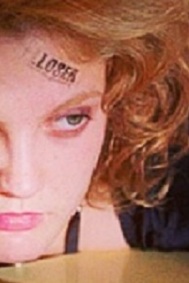 It’s all in how you frame it. What’s your spin on things? How do you see yourself? Is life bliss-filled or disasterous? You decide. You choose. It’s simple really. Nothing to it. Live a pleasant life by living wisely, justly and well (Epicurus). And yet, living a pleasant life can be difficult when you’re with a species hell-bent on making the earth a landfill.
It’s all in how you frame it. What’s your spin on things? How do you see yourself? Is life bliss-filled or disasterous? You decide. You choose. It’s simple really. Nothing to it. Live a pleasant life by living wisely, justly and well (Epicurus). And yet, living a pleasant life can be difficult when you’re with a species hell-bent on making the earth a landfill.
How is it that humans are such brilliant numbskulls (or is it boneheads)?
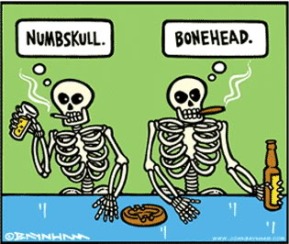 In 1982 when Alice Cooper (aka Vinnie Furnier) sang, “We’re all clones. All are one and one are all” (“Clones”) he anticipated a people without individuality singsonging, “No more problems on the way!”
In 1982 when Alice Cooper (aka Vinnie Furnier) sang, “We’re all clones. All are one and one are all” (“Clones”) he anticipated a people without individuality singsonging, “No more problems on the way!”
It’s not a new idea. People have always cloned around. In 1802 Willy Wordsworth put it this way:
The world is too much with us; late and soon,
Getting and spending, we lay waste our powers; –
Little we see in Nature that is ours;
We have given our hearts away, a sordid boon!
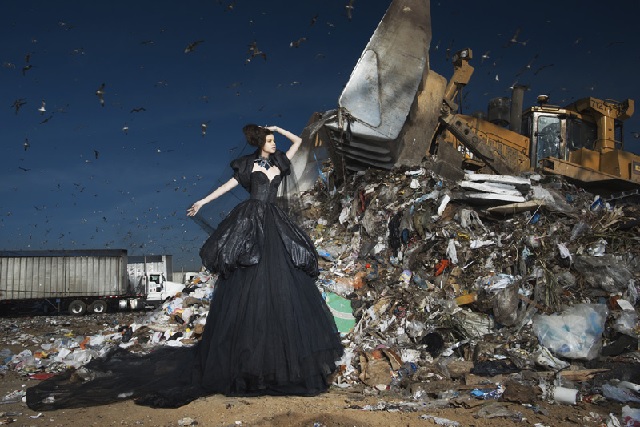
Why have humans declared war on nature? Is it because we construct reality and meaning within our minds? Is it because we have a bias towards confirming ourselves? Is it because we have a bias towards the present? What is it? The news is not good.
Is it any wonder so many want a new drug like Huey Lewis did?
Here we come to the crux of the matter. The trick to enjoying in the midst of humanity’s idiocy is in framing, priming and transcending.
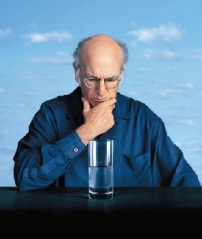 Framing is a bias towards a given choice depending how it’s presented. It’s how the cover of a book influences your judgement. Framing moves you to react in certain ways based on how your brain makes comparisons between loss/gain, good/bad, half-full/half-empty. In framing you decide what’s important.
Framing is a bias towards a given choice depending how it’s presented. It’s how the cover of a book influences your judgement. Framing moves you to react in certain ways based on how your brain makes comparisons between loss/gain, good/bad, half-full/half-empty. In framing you decide what’s important.
Framing is how you find patterns in chaos to survive and create meaning out of meaninglessness. The way you choose to frame things determines how you see.

Priming happens when subtle triggers influence your behavior without your awareness (Gladwell, 2006). Almost everything you perceive with your senses can blitz you with associations in your mind and cause you to act in certain ways without your awareness.
For example, if asked to name a fruit and you see the word “RED,” you’re more likely to think “apple” than “banana.” The word “RED” is priming the word “apple” into your brain.
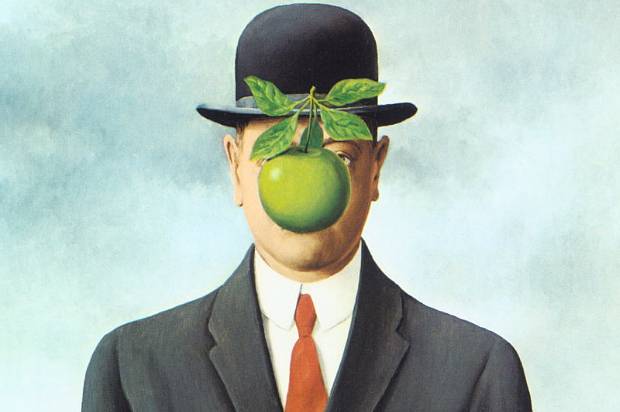
René Magritte painted a self-portrait with his face behind a green apple and said, “Everything we see hides another thing. We always want to see what is hidden by what we see” (source). Maybe that’s why we don’t see what’s in front of us. We’re looking for something hidden.
![]()
Priming works best when not over thinking. You know you’re priming when time disappears. The trick is to let human bumbling cruelty prime you for transcendence by framing it differently. Frame it: They don’t know what they’re doing! They’re doing the best they can. Frame yourself freedom and then see beauty in a dump.
 “Transcend” comes from Latin trans-, meaning “beyond,” and scandare, meaning “to climb” (source). It’s simple: to transcend is to climb beyond your usual physical needs and realities.
“Transcend” comes from Latin trans-, meaning “beyond,” and scandare, meaning “to climb” (source). It’s simple: to transcend is to climb beyond your usual physical needs and realities.
Prime yourself aware! Create meaning! Climb beyond ordinary feeling. Transcend transcendence by enjoying.
References:
Glandwell, M. (2006). Blink. Little Brown & Company.
McRaney, D. (2011). You Are Not So Smart. Gotham Books.






 And yet, feeling at one with everything sounds like a fantasy because it feels like there’s a self “in here” (with your name on it!) and a world “out there,” (that’s scary sometimes) but this is a trick we play on ourselves (
And yet, feeling at one with everything sounds like a fantasy because it feels like there’s a self “in here” (with your name on it!) and a world “out there,” (that’s scary sometimes) but this is a trick we play on ourselves (
 Likening the brain to a computer has been around for awhile. We think of ourselves in machine terms. We enjoy time on our computers but lose contact with the natural world.
Likening the brain to a computer has been around for awhile. We think of ourselves in machine terms. We enjoy time on our computers but lose contact with the natural world.
 The rabbit hole is a metaphor for that which takes us to difficult truths and the bizarre. It is a reference to the rabbit hole leading to Wonderland in Alice in Wonderland.
The rabbit hole is a metaphor for that which takes us to difficult truths and the bizarre. It is a reference to the rabbit hole leading to Wonderland in Alice in Wonderland. As Morpheus softly said, clad in leather sitting on his Santa Claus chair in The Matrix, “You take the red pill and you stay in Wonderland and I show you how deep the rabbit hole goes.” In electronic worlds we lose touch with the natural world.
As Morpheus softly said, clad in leather sitting on his Santa Claus chair in The Matrix, “You take the red pill and you stay in Wonderland and I show you how deep the rabbit hole goes.” In electronic worlds we lose touch with the natural world.
 Back to the question: If the brain is like a computer, who’s controlling it? Some scientists say it’s the brain controlling the mind and some say it’s the other way around (
Back to the question: If the brain is like a computer, who’s controlling it? Some scientists say it’s the brain controlling the mind and some say it’s the other way around ( The Wise Advocate (true self or inner guide) can be thought of as a cognitive construct or as something spiritual. It is attentive to the bigger picture. It knows what you’re thinking and feeling and wants the best for you because it cares for you. Here we see hints of science meeting religion.
The Wise Advocate (true self or inner guide) can be thought of as a cognitive construct or as something spiritual. It is attentive to the bigger picture. It knows what you’re thinking and feeling and wants the best for you because it cares for you. Here we see hints of science meeting religion. Dissatisfaction and deceptive pleasure habits form neural pathways that cut deep ruts hard to get out of. The life you live may not be the one you envisioned, but with imagination, a spirited effort and new routines, you can travel past trouble and feel enjoyment in the world.
Dissatisfaction and deceptive pleasure habits form neural pathways that cut deep ruts hard to get out of. The life you live may not be the one you envisioned, but with imagination, a spirited effort and new routines, you can travel past trouble and feel enjoyment in the world. To one awake to life in the natural world, to its symbolism as well as its facts, with a Philosophy of Enjoyment, depending where you are in the world, there is always air and quite possibly a hare for you to see and love!
To one awake to life in the natural world, to its symbolism as well as its facts, with a Philosophy of Enjoyment, depending where you are in the world, there is always air and quite possibly a hare for you to see and love!

 Self-help is defined as, “the use of one’s own efforts and resources to achieve things without relying on others” (Google).
Self-help is defined as, “the use of one’s own efforts and resources to achieve things without relying on others” (Google). It’s obvious: Each is unique. You are you. Bieber is the Biebs and Beethoven only looks constipated.
It’s obvious: Each is unique. You are you. Bieber is the Biebs and Beethoven only looks constipated. People have a mania for comparing and under or over rating each other. We’re opinion machines.
People have a mania for comparing and under or over rating each other. We’re opinion machines. This has nothing to do with your self. It’s not about you. That is, the thing to do is to forget yourself. Enjoy all you see, hear and feel. No ego. No win. No lose. No success. Be as 24 hour radio: All humility! All the time!
This has nothing to do with your self. It’s not about you. That is, the thing to do is to forget yourself. Enjoy all you see, hear and feel. No ego. No win. No lose. No success. Be as 24 hour radio: All humility! All the time!

 Research psychiatrist and neuroplasticity – conscious use of directed thoughts – expert, Jeffrey Schwartz says, “You Are Not Your Brain.” He explains that the mind or, “directed attention,” changes how the brain sends messages.
Research psychiatrist and neuroplasticity – conscious use of directed thoughts – expert, Jeffrey Schwartz says, “You Are Not Your Brain.” He explains that the mind or, “directed attention,” changes how the brain sends messages.
 It’s not that we want to stop firing, it’s that we want things firing to help us enjoy. The trick to beautiful enjoyments is to realize that what your brain is doing isn’t you, as in: “Excuse me. That wasn’t me. It was my brain.” Schwartz calls this your “true self” or “wise advocate. You can change your brain effectively through “wise focus of attention.”
It’s not that we want to stop firing, it’s that we want things firing to help us enjoy. The trick to beautiful enjoyments is to realize that what your brain is doing isn’t you, as in: “Excuse me. That wasn’t me. It was my brain.” Schwartz calls this your “true self” or “wise advocate. You can change your brain effectively through “wise focus of attention.” A poet of enjoyment lives in song.
A poet of enjoyment lives in song.